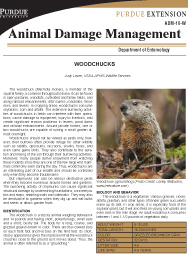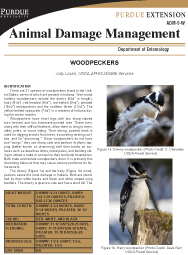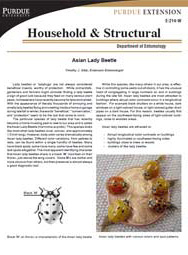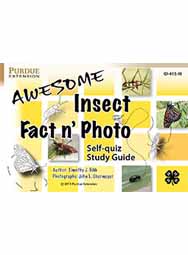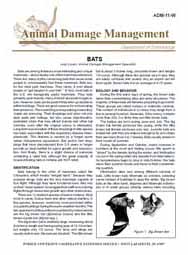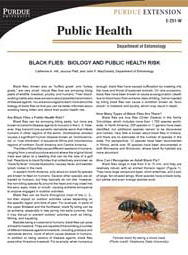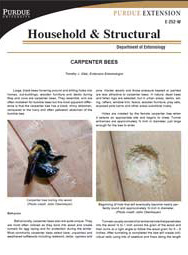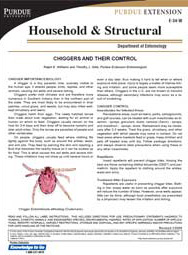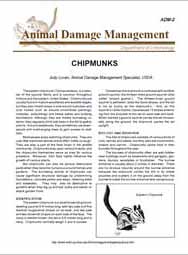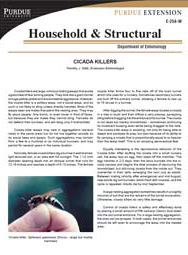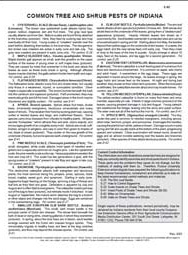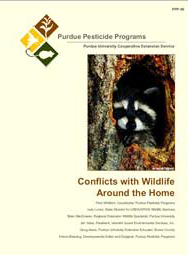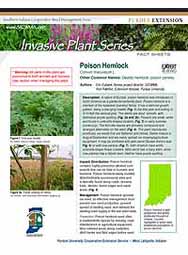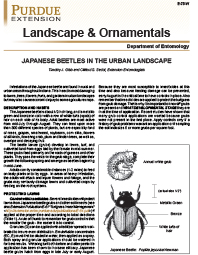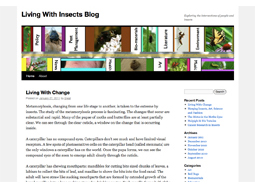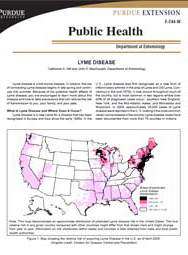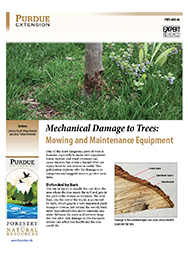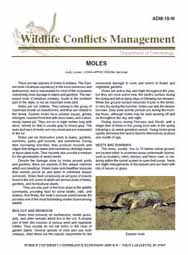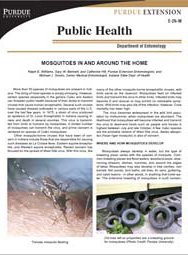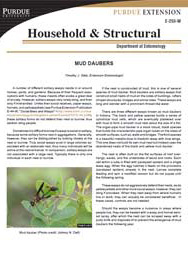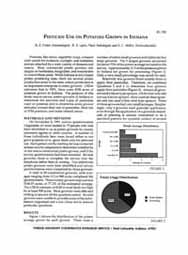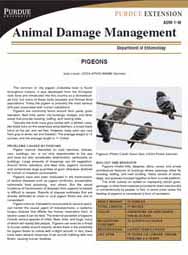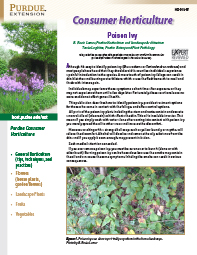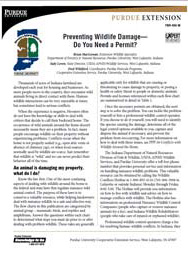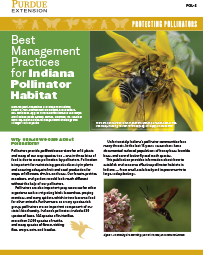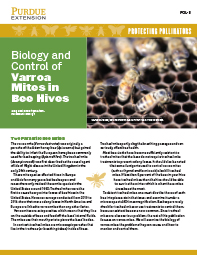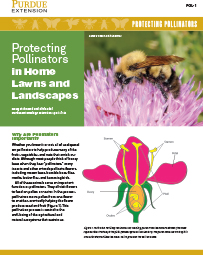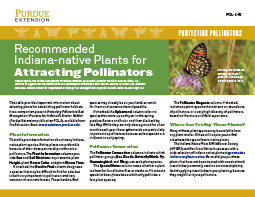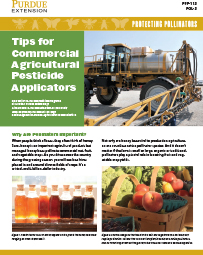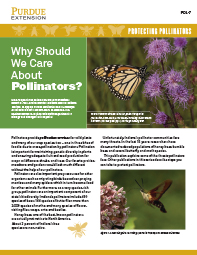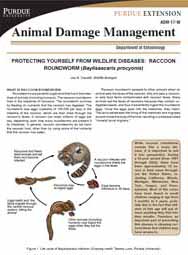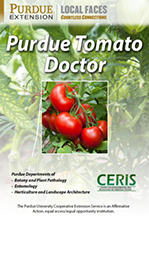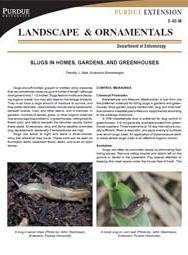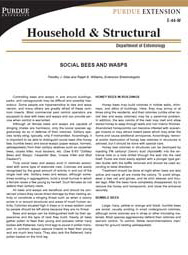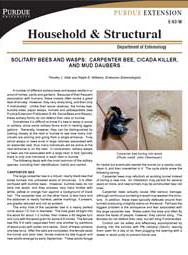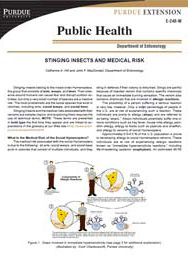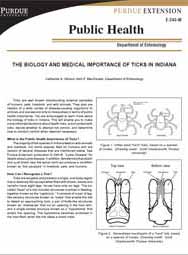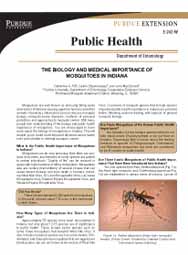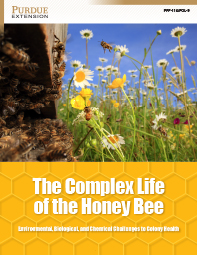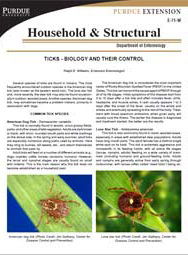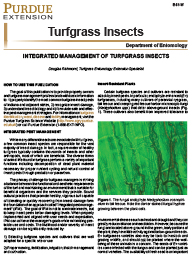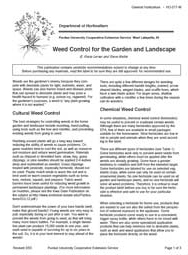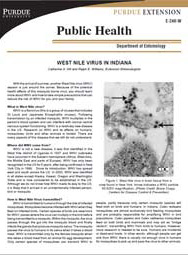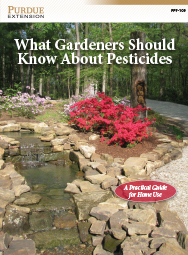Country Lifestyle
Yard Pests
Animal Damage Management: Woodchucks
Woodchucks are common throughout Indiana, and their extensive burrowing can cause severe damage. This publication shows readers how to identify woodchucks, the damage they can cause, and the ways you can control them.
Animal Damage Management: Woodpeckers
There are 21 woodpecker species in the United States, seven of which live in Indiana. This publication shows readers how to identify woodpeckers, the damage they can cause, and the ways you can control them.
Lady beetles or 'ladybugs' are not always considered beneficial insects, worthy of protection. With the appearance of literally thousands of annoying and smelly lady beetles, flying and crawling inside a home or ...
Awesome Insect Fact n' Photo Self-Quiz Digital Study Guide
This set of digital flash cards, created in a PDF format designed for smart phones and tablets, helps entomology students recognize and identify the most common insects. It contains 150 insect photographs together with t...
Black Flies: Biology and Public Health Risk
Black flies, known also as "buffalo gnats" and "turkey gnats," are very small, robust flies that are annoying biting pests of wildlife, livestock, poultry, and humans. Their blood-sucking habits also raise concerns about...
Large black bees hovering around and drilling holes into homes, out-buildings, wooden furniture and decks during May and June are carpenter bees. They resemble, and are often mistaken for bumble bees but the most apparen...
Cicada killers are large, ominous looking wasps that evoke a good deal of fear among people. They look like a giant hornet or huge yellow-jacket and are somewhat aggressive....
Common Tree and Shrub Pests of Indiana
Provides photos and brief descriptions of various tree and shrub insect pests.
Format: PDF.
Pages: 2.
Language: English.
...Conflicts with Wildlife Around the Home
Sometimes we invite wildlife into our living area by naturalizing our backyards. We add feeders, birdbaths, ponds, ornamental flowers, shrubs and grasses to make our backyard look more natural and this is very attract...
Invasive Plant Species Fact Sheets: Poison Hemlock
This threepage fact sheet in the Invasive Plant Series provides information on identifying and controlling this poisonous weed. The publication, produced in partnership with the Southern Indiana Cooperative Weed Manageme...
Landscape & Ornamentals: Japanese Beetles in the Urban Landscape
Japanese beetle infestations are found in rural and urban areas throughout Indiana. This publication describes Japanese beetle habits and how to control them in lawns, ornamentals, and food plants.
Forma...
The author uses this blog in conjunction with a class as a forum for exploring all subjects touching upon insects and arthropods. Comments are encouraged, but moderated, to encourage a thoughtful community. The author, J...
This resource covers the cause, transmission, and biology of lyme disease. It also has a diagram on tick removal....
Mechanical Damage to Trees: Mowing and Maintenance Equipment
One of the most dangerous pests of trees is humans, especially humans with equipment. Lawn mowers and weed trimmers can cause injuries that create a hazard when an injury leads to tree disease or death. This publication ...
Mosquitoes In and Around the Home
Information in this publication covers where and how mosquitoes develop. It provides suggestions for elimination of mosquito breeding places and control around the home....
A number of different solitary wasps reside in or around homes, yards, and gardens. Because of their frequent associations with humans, these insects often evoke a great deal of anxiety. However, solitary wasps very rare...
Pesticide Use on Potatoes Grown in Indiana
Potatoes, like many vegetable crops, compete with weeds for moisture, sunlights, and nutrients and are attacked by a wide variety of diseases and insects. Most commercial potato growers rely largely on herbicides, fungic...
This publication describes how to identify poison ivy, provides treatment options for those who come in contact with the foliage, and offers control options.
Format: PDF.
Pages:
Protecting Pollinators: Best Management Practices for Indiana Pollinator Habitat
This publication provides information about how to establish and conserve effective pollinator habitats in Indiana - from small-scale backyard improvements to large-scale plantings.
Format: Bo...
Protecting Pollinators: Biology and Control of Varroa Mites in Bee Hives
This publication describes varroa mites and their effects on honey bee hives. It also recommends monitoring and management practices to protect hives against this pest.
Format: Booklet, PDF, an...
Protecting Pollinators: Protecting Pollinators in Home Lawns and Landscapes
Whether you know it or not, we all depend on pollinators for the fruits, vegetables, nuts, and flowers that enrich our lives. But pollinators face many threats. This publication explains what homeowners can do to prot...
Protecting Pollinators: Recommended Indiana-native Plants for Attracting Pollinators
This publication provides a list of recommended plants that homeowners and others can use to establish and conserve effective pollinator habitats in Indiana - from small-scale backyard improvements to large-scale plan...
Protecting Pollinators: Tips for Commercial Agricultural Pesticide Applicators
While agricultural pesticide applicators may not be able to control factors like habitat loss, they can take practical steps to help protect the pollinators so many in the agricultural industry rely upon. This publica...
Protecting Pollinators: Why Should We Care About Pollinators?
This publication explains some of the threats pollinators face. Other publications in the Protecting Pollinators series describe steps you can take to protect pollinators.
Format: Booklet, PDF,...
Protecting Yourself from Wildlife Diseases: Raccoon Roundworm (Baylisascaris procyonis)
Roundworms are parasitic organisms that live in the intestines of animals (including humans). The raccoon roundworm lives in the intestines of raccoons. The roundworm survives by feeding on nutrients that the raccoon has...
Purdue Tomato Doctor (Android app)
You will buy this item from the Google Play Store.
Purdue Tomato Doctor (iOS app)
You will buy this item from the Apple App Store. You must log into your Apple account for this purchase









